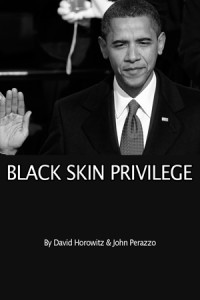I am not sure why the authors of Black Skin Privilege and the American Dream, reviewed by philosopher-pundit Jack Kerwick on FrontPage Magazine, picked on Desmond Tutu as an example of black privilege in South Africa.
It must be an authorial tic peculiar to neoconservatives, and applied to anyone with an anti-Israel position, for which Archbishop Tutu is famous. It is also typical of the neoconservative’s reflexive ahistoric approach, where a proposition or an idea (black privilege) is applied without nuance, to any and all annoying blacks (Tutu is that alright).
Horowitz and Perazzo even show that black skin privilege transcends continents. Alluding to South Africa’s Bishop Demond Tutu, they write: “What white spiritual leader could support the torture-murders of South African blacks, compare Israel to Nazi Germany, and still be regarded as a moral icon? A black cleric like Bishop Desmond Tutu can.” (Indeed, as occasional Front Page Magazine contributor and former South African resident Ilana Mercer amply demonstrates in her, Into the Cannibal’s Pot: Lessons for America from Post-Apartheid South Africa, the new South Africa is black skin privilege on steroids.)
(From “Black Skin Privilege and the American Dream” by Jack Kerwick.)
I don’t think Desmond Tutu is an example of black privilege. He supports it, but doesn’t exemplify it.
If anything, the elderly Archbishop, whose inauguration I attended and with whom my father and I took afternoon tea many decades back, embodies the old-style, old school African man. Tutu grew up in wretched poverty, received—and gladly accepted—a decent education courtesy of the Church, and worked his ministry so hard as to reap the rewards. (In “Into the Cannibal’s Pot: Lessons for America from Post-Apartheid South Africa,” I discuss the wonders the white-run churches had done in South Africa, as do I mention what was for me a memorable meeting with the Archbishop. From that occasion I took away that he was fond of my father and respectful of dad’s Jewish faith and scholarship. How good an equalizer were some schools in the old South Africa? You be the judge. Tutu and I, and tens of thousands of other Africans, belong to the same alma mater: UNISA.)
Sure, Tutu is a left-liberal. But to me, as I said in “King Tut(u) Not So Terrific,” his impiety stems from never having piped up about the ethnic cleansing of rural whites, Afrikaners mostly, from the land in ways that beggar belief. Saint Mandela has also remained mum about these Shaka-Zulu worthy murders.
And so have our neoconservatives!
Witness the authors of Black Skin Privilege and the American Dream, who, it would appear, protest Tutu’s alleged support for the “torture-murders of South African blacks” (by which I am told they meant white South Africans), but say nothing, seemingly (just like Tutu), about the targeted slaughter of whites in South Africa, and then only when it’s politically safe to do so. (Watch Barely a Blog for commentary about Oscar Pistorius.)
Jack Kerwick, of course, is correct (and most kind) to subtly remind neoconservatives that it is “the new South Africa [that] is black skin privilege on steroids” (and that a rightist has already plumbed the depths of this topic).


 print
print